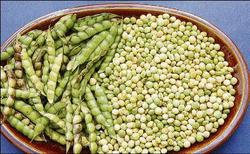
Rosalee Brown
Most of us have been keeping abreast of the changes in the economies of neighbouring countries, especially that of our close neighbour, the United States of America.
We have been following the increases in oil prices and the domino effect on the prices of consumer items including food. Food prices have also been affected by the scarcity of some vital food ingredients such as corn. This we are told is tied into the same fuel debacle as bio fuel is the order of the day. An item such as corn, formerly food only, then fodder, then corn syrup (sweetener) is now fuel. Corn, soy bean and even sugar cane are now more profitable to make cleaner, safer fuel for the environment.
So, producers of these raw materials have turned their eyes not to the food production market but the fuel market. The effect is scarce and expensive raw material for food. Of course, this trickles down to the consumer, especially poorer people who spend a greater percentage of their income on food. We will, therefore, soon see more 'food insecure' people.
Riots in Haiti
We have already seen food riots in Haiti, our Caribbean neighbour and the poorest nation in the western hemisphere. Food aid programmes are also being affected. The USAID, one of the largest food aid programmes globally, has seen a $120 million budget short- fall, attributed, it says, to the 41 per cent increase in corn, rice and other cereal prices.
We have started seeing the high prices at home and it will not get better in the short term. So, what do we do? Maybe, work harder so we can afford more? Most persons have a static income and depend on the confines of a memorandum of understanding. We will not cry, we will act as Jamaicans who are adept at doing the right thing. We have been doing this for generations.
I live in the city and my husband and I plant legumes, fruits, ground provisions and vegetables and we are working people. My husband spends a part of his mornings watering the items he plants. We had a substantial vegetable garden which I would tend each morning before going to work. The vegetable garden is no longer large, but we still have legumes, ground provisions and fruits. We always have a lot to give away, so it can be done. It has also created a tradition, as my daughter has moved to her own home and one of her first tasks was to set up her vegetable garden which she tends with her three-year-old although she is a busy attorney.
Backyard gardening
We need to use all available space and for those who had stopped, start planting again. An orange tree, two roots of banana, one root of plantain, even a bank of yam!
Vegetables such as tomatoes, sweet peppers intersperse well with your flowers. It is as easy as it sounds. You enjoy freshly harvested foods; you swell with pride when you reap. You become a good neighbour by sharing, and you teach your family to do the same.
The bonus is some good exercise and without even thinking about it. So, you kill more than two birds with one stone, - reduce your food budget, eat healthier foods, share, teach, reduce body fat and increase muscle mass. Can you beat that? No! Start this weekend.

Peas, legumes, fruits, vegetables can be planted in the backyard garden to manage the food bill. - Andrew Smith/Photography Editor
Readers' questions on composting
To readers who asked about the 'correctness' of putting their kitchen waste in the garden or around young banana plants, I would not say this is wrong, but it may not be ideal if it is left uncovered. When it is covered, decomposition would be speeded up and very importantly, it will not be exposed to flies and rodents. So cover with earth.
Rosalee M. Brown is a registered dietitian/nutritionist who operates Integrated Nutrition and Health Services; email: yourhealth@gleanerjm.com.

